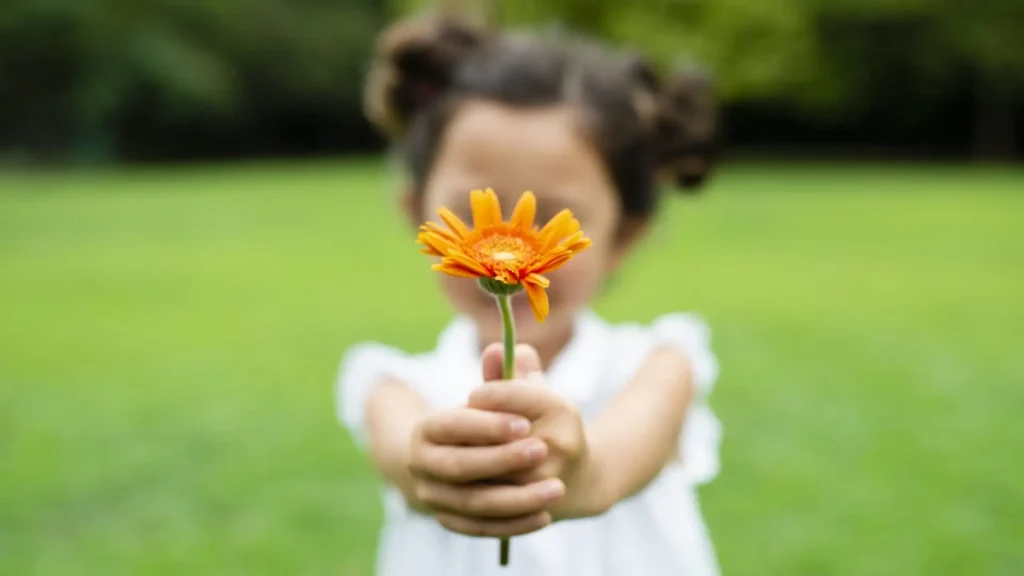Ever heard the phrase “Love what you have before life teaches you to love”? It’s a profound piece of advice that resonates deeply with the essence of gratitude and contentment. In a world where we’re constantly chasing after more – more success, more possessions, more everything – it’s easy to overlook the value of what we already possess. This quote serves as a gentle reminder to appreciate our current blessings before life forces us to realize their worth through hardship.
The Origin of “Love what you have, before life teaches you to love — Tymoff”
The phrase “Love what you have, before life teaches you to love” was popularized by Tymoff, a modern philosopher who emphasizes the importance of gratitude, contentment, and mindfulness. While the exact origins of this philosophy remain unclear, it has gained significant recognition in recent years for its profound simplicity and universal applicability.
Understanding Contentment
Defining Contentment
Contentment is the state of being satisfied with what you have. It’s about finding peace in your current circumstances and not constantly yearning for something else. It’s crucial to distinguish contentment from complacency. Contentment is about happiness with what you have, while complacency is about lack of ambition.
Contentment vs. Complacency
While contentment is a positive state of satisfaction, complacency can be detrimental, leading to stagnation. Contentment inspires gratitude and appreciation, whereas complacency often results in a lack of motivation to improve or grow.
The Dangers of Constant Pursuit

The Never-Ending Cycle of Want
In our pursuit of more, we often find ourselves trapped in a never-ending cycle of desire. We achieve one goal only to set another, never pausing to appreciate our accomplishments. This relentless chase can leave us feeling perpetually dissatisfied.
Impact on Mental Health
The constant pursuit of more can take a significant toll on our mental health. It fosters feelings of inadequacy, anxiety, and depression. By not appreciating what we have, we undermine our well-being.
Benefits of Appreciating What You Have
Improved Mental Well-being
When you start appreciating what you have, you shift your focus from what’s missing to what’s present. This shift can lead to improved mental health, reducing stress and anxiety.
Stronger Relationships
Gratitude fosters stronger, healthier relationships. When you appreciate the people in your life, you build deeper connections and create a more supportive network.
Increased Happiness
Happiness isn’t found in acquiring more but in valuing what you already have. Gratitude and appreciation are key components of a happy life.
How to Cultivate Gratitude

Mindfulness Practices
Mindfulness helps you stay present and appreciate the moment. Practices like meditation can enhance your awareness of your blessings.
Keeping a Gratitude Journal
Writing down what you’re thankful for each day can significantly boost your gratitude. It helps you focus on the positives in your life.
Acts of Kindness
Engaging in acts of kindness can amplify your gratitude. Helping others reminds you of what you have and fosters a sense of connection and appreciation.
Recognizing Abundance in Everyday Life
Finding Joy in Simple Things
Often, the simplest things bring the most joy – a warm cup of coffee, a good book, or a walk in nature. Recognizing these small pleasures can enhance your sense of abundance.
Shifting Perspective from Lack to Abundance
Instead of focusing on what you lack, shift your perspective to what you have. This mindset change can transform your outlook on life.
Lessons from Adversity
How Hardships Highlight What Matters
Adversity often strips away the non-essential, highlighting what truly matters. Challenges can teach us to appreciate our health, relationships, and basic comforts.
Stories of Transformation Through Difficult Times
There are countless stories of individuals who found gratitude and joy after facing significant hardships. These narratives remind us that even in tough times, there is much to be grateful for.
The Role of Society and Culture

Societal Pressures and Materialism
Society often equates success with material wealth, creating pressure to constantly acquire more. This materialistic mindset can detract from our ability to appreciate what we have.
Breaking Free from Consumerism
Breaking free from consumerism involves redefining success and happiness. It means valuing experiences over possessions and relationships over material goods.
Practical Steps to Love What You Have
Daily Gratitude Rituals
Incorporate gratitude rituals into your daily routine. Whether it’s a morning reflection or a bedtime gratitude list, these practices can make a significant difference.
Decluttering and Simplifying Life
Decluttering your physical space can also help declutter your mind. A simpler, more organized environment can lead to greater appreciation for what you have.
Building Stronger Connections with Loved Ones
Investing time in relationships can enhance your appreciation for the people in your life. Strong connections foster a sense of belonging and gratitude.
Mindfulness and Living in the Present
Techniques for Being Present
Techniques like deep breathing, meditation, and mindful walking can help you stay present. Being present allows you to fully appreciate each moment.
Benefits of Present-Moment Awareness
Living in the present reduces stress and anxiety. It helps you focus on what’s important and appreciate the here and now.
Embracing Imperfection
The Beauty in Imperfection
Imperfections add character and uniqueness. Embracing them can lead to greater self-acceptance and appreciation.
How Imperfections Enhance Value
Just as a handmade object is valued for its unique flaws, our imperfections make us unique and valuable.
The Power of Positive Thinking

Reframing Negative Thoughts
Reframing negative thoughts into positive ones can shift your mindset towards gratitude. Instead of focusing on what’s wrong, focus on what’s right.
Cultivating a Positive Mindset
A positive mindset enhances overall well-being. It helps you appreciate the good in your life and fosters a sense of gratitude.
Finding Fulfillment in Purpose
Aligning Actions with Values
Living a life aligned with your values brings a deep sense of fulfillment. It helps you appreciate your efforts and achievements.
The Joy of Meaningful Work
Finding joy in meaningful work can enhance your sense of purpose and gratitude. It allows you to appreciate your contributions and impact.
Conclusion
In a world obsessed with more, it’s vital to pause and appreciate what we have. Loving what you have before life teaches you to love it can lead to greater happiness, stronger relationships, and improved well-being. By cultivating gratitude, living in the present, and embracing imperfections, you can find contentment and joy in everyday life. Remember, true happiness lies not in acquiring more but in valuing what you already possess.
FAQs
What are simple ways to practice gratitude daily?
Simple ways to practice gratitude include keeping a gratitude journal, expressing thanks to others, and reflecting on positive experiences each day.
How can I stop comparing myself to others?
To stop comparing yourself to others, focus on your own journey, celebrate your achievements, and practice self-compassion.
Why is it important to love what you have?
Loving what you have is important because it fosters contentment, reduces stress, and enhances overall happiness and well-being.
Can gratitude improve my mental health?
Yes, gratitude can improve mental health by reducing stress, enhancing mood, and fostering positive relationships.
How can I teach my children to be grateful?
Teach children gratitude by modeling it yourself, encouraging them to express thanks, and involving them in acts of kindness
